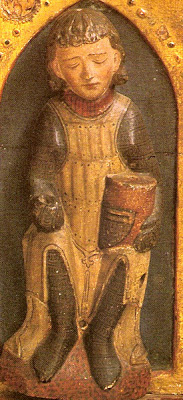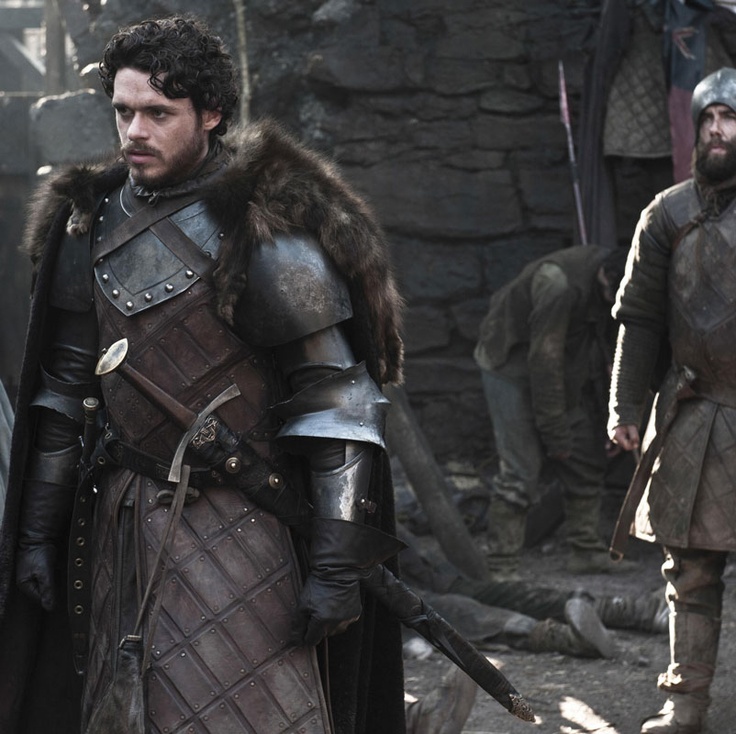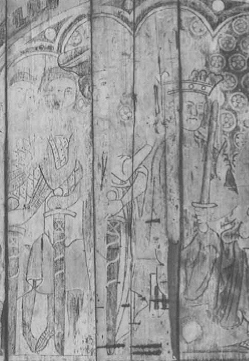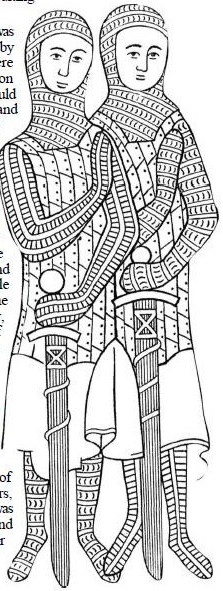Posts: 1,525 Location: Sydney, Australia
Sat 08 Nov, 2014 4:15 am
http://lh6.ggpht.com/_yDLLneTuGJA/SjZAnysEwUI...urcoat.jpg heres a much better example,
i first heard of the example of non overlapping plates it from 'knight, noble warrior of england' for a C1290 English knight, i think that kind aof armour is known as a reinforced surcoat, and it was added on top of the
maille, however it seems to be short lived since it was likely superseded by the COP
and finally i found the reference for it
it's a small statue or carving dated to around 1270 in this case there are clear lines showing plates that are not touching/ overlapping on either side.
i didnt realise the armour i linked was a braveheart replica.. i dfeel suitably embarrassed
however i think arguing over whether they could exist or not is moot, i think i have enough evidence to understand whether the stark armour would be decently functional.
 Attachment: 40 KB
Attachment: 40 KB

example of an 'armoured surcoat' from the Weinhausen Monestary, apparently dated to the 1270's
in this case there are clear lines showing plates that are not touching/ overlapping on either side.



